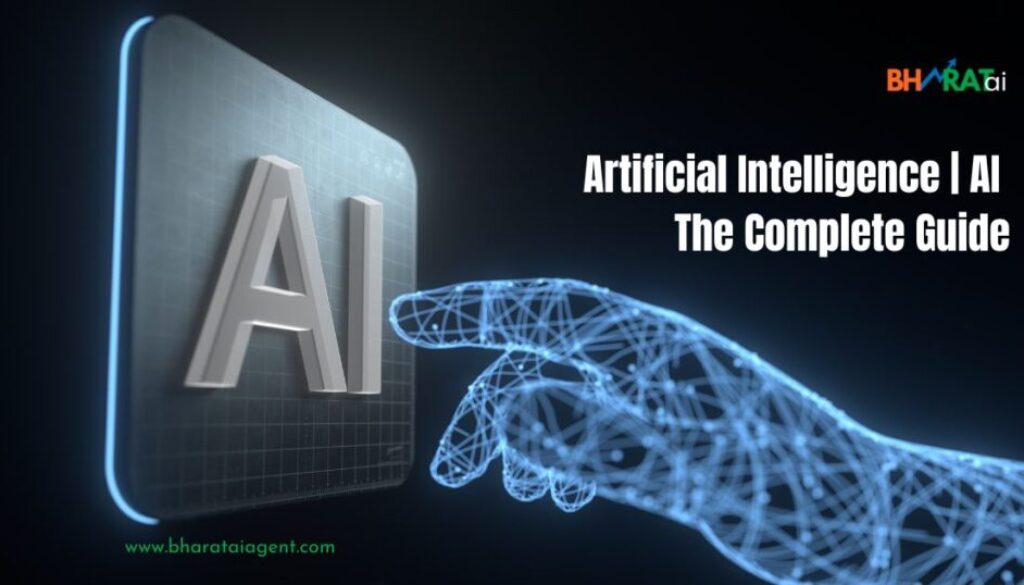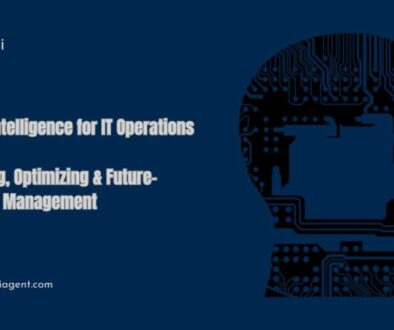Artificial Intelligence (AI) : The Complete Guide to Understanding and Leveraging AI in 2025
What is Artificial Intelligence (AI)?
Artificial Intelligence (AI) has profoundly impacted every aspect of society, reshaping industries from healthcare and education to finance and transportation. AI enables computers and machines to simulate human intelligence, including reasoning, learning, problem-solving, and decision-making, leading to innovative solutions and smarter interactions.
AI systems typically use techniques such as:
-
Machine Learning (ML) – Enables systems to learn from data.
-
Deep Learning (DL) – A subset of ML using neural networks.
-
Natural Language Processing (NLP) – Allows AI to understand human language.
-
Computer Vision – Lets AI interpret visual information.
How Does Artificial Intelligence Work?
AI operates by processing extensive data sets using sophisticated algorithms and computing power. The typical AI development process involves:
- Data Gathering: Collecting large amounts of structured and unstructured data.
- Data Pre-processing: Cleaning and formatting data for accuracy and relevance.
- Model Development: Building AI models using Machine Learning (ML), Deep Learning (DL), and Natural Language Processing (NLP).
- Training and Validation: Ensuring models accurately perform specific tasks.
- Deployment and Optimization: Implementing models and continuously improving through real-time learning.
Types of AI
1. Narrow AI (Weak AI)
Specialized AI systems designed for specific tasks:
- ChatGPT and Gemini: Advanced conversational AI for human-like interactions.
- Facial recognition and biometric authentication in personal devices and security systems.
2. General AI (Strong AI)
Theoretical systems capable of human-like reasoning and multitasking, still under active research, with significant advancements expected in the coming decade.
3. Generative AI
AI models capable of generating original content:
- DALL·E and Midjourney: Image and video creation.
- Runway AI and Synthesia: AI-powered content and media production.
Real-World AI Applications in 2025
✅ Healthcare
- AI-powered diagnostics and personalized treatments.
- Robotic surgeries enhanced by AI-driven precision.
✅ Finance
- AI-driven investment tools and fraud detection.
- Real-time credit scoring and personalized financial planning.
✅ Transportation
- Autonomous vehicle technology achieving mainstream adoption (e.g., Tesla, Waymo).
- Smart logistics and route optimization.
✅ Education
- AI-driven adaptive learning platforms offering customized educational experiences.
- Virtual reality and AI tutors revolutionizing remote education.
✅ Retail and E-commerce
- AI-driven recommendation engines predicting consumer behavior.
- Automated warehouses managed by AI robotics.
Benefits of Using Artificial Intelligence
- Enhanced Efficiency: Automates complex and repetitive tasks, increasing productivity.
- Higher Accuracy: Reduces human errors significantly.
- Cost Reduction: AI automation reduces operational costs.
- Innovation: Drives new products, services, and market opportunities.
- Better Decision-Making: Delivers deep insights and predictive analytics.
Common Myths and Misconceptions about AI
❌ AI Will Replace Humans Completely.
-
Reality: AI complements human roles, enhancing productivity rather than fully replacing jobs.
❌ AI is Always Perfect.
-
Reality: AI accuracy depends on data quality and model design. Continuous improvement is necessary.
❌ AI is Only for Large Companies.
-
Reality: AI is accessible to businesses of all sizes through affordable tools and solutions.
Addressing AI Ethical Concerns in 2025
AI advancements raise ethical concerns such as:
- Data Privacy and Security: Ensuring user data protection and compliance (GDPR, CCPA).
- Algorithmic Bias: Developing fair AI systems to avoid discrimination.
- Transparency: Clear, explainable AI to foster trust.
- Job Automation: Balancing automation with new employment opportunities and skill training.
Future AI Trends
- AI-Human Collaboration: Increased synergy between humans and AI for enhanced productivity.
- AI in Edge Computing: AI processing at local device levels improving real-time decision-making.
- Emotionally Intelligent AI: AI detecting and responding to human emotional states.
- Quantum Computing Integration: Boosting AI capabilities significantly in problem-solving.
Frequently Asked Questions (FAQs)
Q1. What exactly is AI?
AI is a technology enabling computers to simulate human intelligence to perform tasks like learning, decision-making, and language understanding.
Q2. What’s the difference between AI, machine learning, and deep learning?
-
AI: Broad field covering intelligent machines.
-
Machine Learning: A subset of AI focused on algorithms that learn from data.
-
Deep Learning: A specialized ML technique using neural networks to learn from vast data.
Q3. Is AI safe in 2025?
Yes, AI is safe when developed responsibly, focusing on ethics, transparency, and strong data protection measures.
Q4. Will AI replace human jobs?
AI is transforming roles rather than completely replacing humans, creating new opportunities and reshaping industries with a focus on creativity and strategic thinking.
Q5. How can small businesses benefit from AI?
Small businesses can leverage affordable, cloud-based AI solutions for marketing automation, customer service, and operational efficiency.
Conclusion
Artificial Intelligence continues to transform industries, creating unprecedented opportunities and challenges. By understanding AI’s potential and embracing ethical, responsible practices, businesses and individuals can leverage AI for sustainable growth, innovation, and enhanced quality of life.
#ArtificialIntelligence #AI #MachineLearning #DeepLearning #FutureTech #AIForBusiness #TechInnovation #AITrends #DigitalTransformation #AIApplications #BharatAI #AIExplained
Artificial Intelligence (AI)
Types of AI
Benefits of Artificial Intelligence
AI in Business
AI solutions provider
AI technology explained
Machine learning & deep learning
AI use cases
AI trends and predictions
Future of AI
What is Artificial Intelligence
AI technology examples
Artificial Intelligence applications
AI and machine learning difference
AI-powered automation
AI implementation strategy
Ethical AI considerations
AI impact on businesses
AI in healthcare and finance
AI future trends




